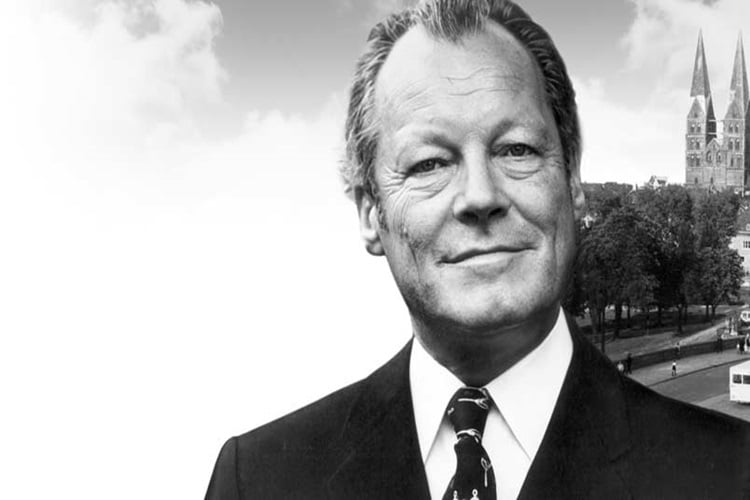Celebrating life and legacy of Willy Brandt

Willy Brandt (18 December 1913 – 8 October 1992) was a German politician and statesman. He was awarded the Nobel Peace Prize.
Life and Career
Willy Brandt was born on December 18, 1913, in Lubeck, Germany.
Brandt grew up in a working-class family and became politically active during his youth, joining the Social Democratic Party of Germany (SPD) in 1930.
In 1933, as Adolf Hitler rose to power, Brandt, being an opponent of the Nazi regime, fled to Norway. There, he adopted the pseudonym “Willy Brandt” to avoid detection.
Brandt’s early political activities included working for the Norwegian government in exile and serving as a political commentator.
After World War II, Brandt returned to Germany and quickly rose through the ranks of the SPD. He became the mayor of West Berlin in 1957, a position he held until 1966. Brandt gained international recognition during the Berlin Crisis of 1961 when he showed strong leadership in the face of the construction of the Berlin Wall.
In 1966, he became the Foreign Minister of West Germany under Chancellor Kurt Georg Kiesinger.
Willy Brandt was elected Chancellor of West Germany in 1969, marking the beginning of his most influential period in politics. One of his most significant achievements was the implementation of Ostpolitik, a policy of improving relations with East Germany and other Eastern Bloc countries. This culminated in the signing of the Basic Treaty with East Germany in 1972.
Brandt’s efforts towards détente and reconciliation earned him the Nobel Peace Prize in 1971.
In 1974, Brandt resigned as Chancellor after it was revealed that one of his closest aides was an East German spy. Although Brandt himself was not implicated, he took responsibility for the scandal.
After leaving office, Brandt continued to be active in politics, serving as the SPD’s chairman until 1987. He also played a role in various international organizations.
He passed away on October 8, 1992, in Unkel, Germany, at the age of 78.
Award and Legacy
Willy Brandt received several awards and honors throughout his lifetime, recognizing his significant contributions to politics, diplomacy, and peace. One of the most notable honors was the Nobel Peace Prize, awarded to him in 1971 for his efforts in improving relations between East and West Germany through his Ostpolitik initiatives.
Brandt’s legacy is strongly tied to his Ostpolitik, a policy that sought to improve relations with East Germany and other Eastern Bloc countries. This approach aimed at reducing tensions and promoting dialogue during the Cold War, ultimately contributing to greater stability in the region.
Willy Brandt played a crucial role during the Berlin Crisis of 1961 and the construction of the Berlin Wall. His leadership in West Berlin earned him recognition as a symbol of the city’s resilience and its commitment to freedom during a challenging period of the Cold War.
Brandt’s diplomatic approach, characterized by dialogue and cooperation, continues to be studied and cited in the field of international relations. His legacy serves as a reference point for those advocating for peaceful resolutions to conflicts.
Observer Voice is the one stop site for National, International news, Sports, Editor’s Choice, Art/culture contents, Quotes and much more. We also cover historical contents. Historical contents includes World History, Indian History, and what happened today. The website also covers Entertainment across the India and World.
Follow Us on Twitter, Instagram, Facebook, & LinkedIn

